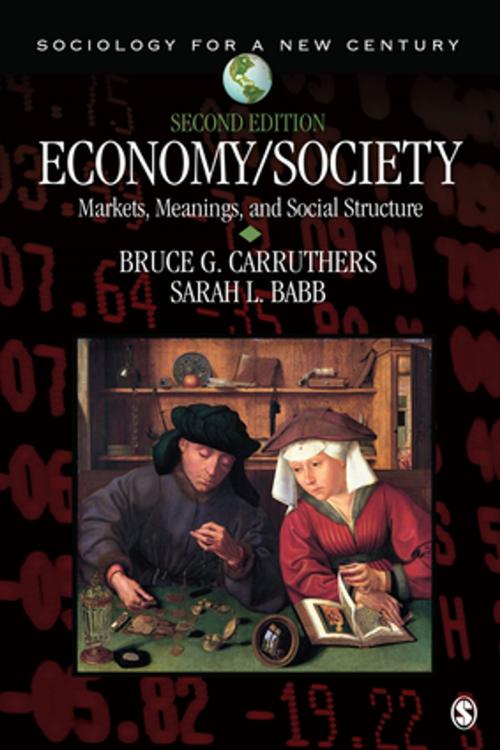Economy/Society
Markets, Meanings, and Social Structure
Nonfiction, Social & Cultural Studies, Social Science, Sociology, Business & Finance| Author: | Bruce G. Carruthers, Sarah Louise Babb | ISBN: | 9781483307107 |
| Publisher: | SAGE Publications | Publication: | May 31, 2012 |
| Imprint: | SAGE Publications, Inc | Language: | English |
| Author: | Bruce G. Carruthers, Sarah Louise Babb |
| ISBN: | 9781483307107 |
| Publisher: | SAGE Publications |
| Publication: | May 31, 2012 |
| Imprint: | SAGE Publications, Inc |
| Language: | English |
In this long-awaited second edition of Economy/Society Markets, Meanings, and Social Structure, authors Carruthers and Babb continue to offer an accessible introduction to the way social arrangements affect economic activity, and shows that economic exchanges are deeply embedded in social relationships. Understanding how society shapes the economy helps us answer many important questions. For example, how does advertising get people to buy things? How do people use their social connections to get jobs? How did large bureaucratic organizations come to be so pervasive in modern economies—and what difference does it make? How can we explain the persistence of economic inequalities between men and women and across racial groups? Why do some countries become rich while others stay poor? This book presents sociological answers to questions like these, and encourages its readers to view the economy through a sociological lens.
In this long-awaited second edition of Economy/Society Markets, Meanings, and Social Structure, authors Carruthers and Babb continue to offer an accessible introduction to the way social arrangements affect economic activity, and shows that economic exchanges are deeply embedded in social relationships. Understanding how society shapes the economy helps us answer many important questions. For example, how does advertising get people to buy things? How do people use their social connections to get jobs? How did large bureaucratic organizations come to be so pervasive in modern economies—and what difference does it make? How can we explain the persistence of economic inequalities between men and women and across racial groups? Why do some countries become rich while others stay poor? This book presents sociological answers to questions like these, and encourages its readers to view the economy through a sociological lens.















